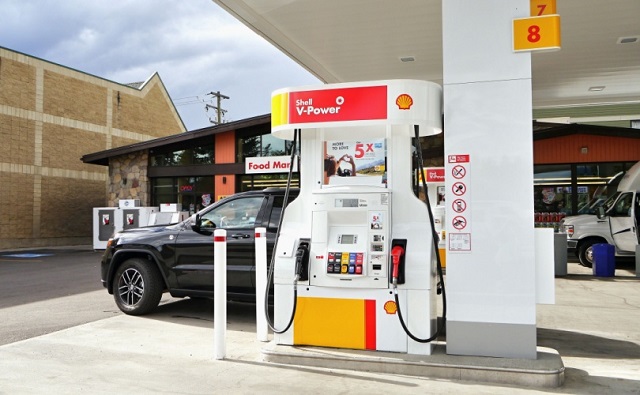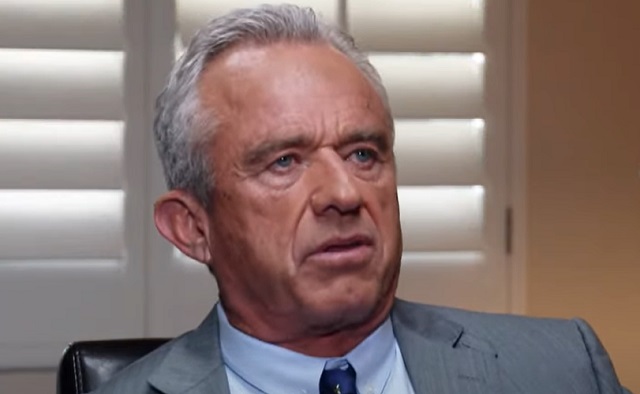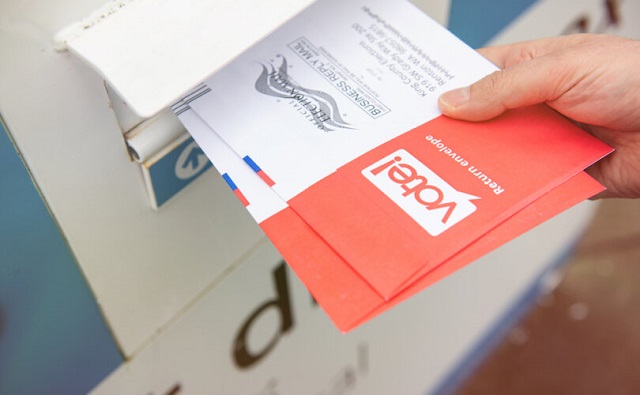Business
Shell scales back emissions goals, says cutting oil and gas production is ‘not healthy’

From LifeSiteNews
The company’s report mentions that its 2035 ‘net carbon intensity’ target has been ‘retired’ due to ‘uncertainty in the pace of change in the energy transition.’
Shell, a major oil and gas supplier in Canada whose federal government has openly called for the end of fossil fuels, announced that it will not meet its planned 2035 emissions targets.
Wael Sawan, the Anglo-Dutch company’s Canadian CEO, noted in Shell’s latest “energy transition strategy” update that “We believe the world will continue to need oil and gas for many years.”
The company had set a target to reduce its so-called ‘net carbon intensity’ to 20% by 2030 but revised the goal to 15%.
Shell said that “cutting oil and gas production,” the objective of the Canadian government, “is not healthy” for the global energy system.
Shell’s report mentions that its 2035 target has been “retired” due to “uncertainty in the pace of change in the energy transition.”
The company still says it has a net-zero target by 2050, but this is not set in stone because “if society is not net-zero in 2050,” then there would be a “significant risk that Shell may not meet this target.”
Shell plans to increase its LNG production by 30%. “Investment in oil and gas will be needed because demand for oil and gas is expected to drop at a slower rate than the natural decline rate of the world’s oil and gas fields, which is 4-5% a year,” the company said.
Other major oil and gas producers such as ExxonMobil, BP, and Canadian company Suncor have all scaled back their own emissions reduction plans.
Faced with the realities of a consumer-driven market and without government interference such as rebates or mandates, studies show that people prefer gas-powered cars over electric vehicles, which are being touted by governments as the saviors to solving what they claim is a “climate change” crisis.
Despite this, Canadian Environment Minister Steven Guilbeault in December 2023 announced the “Electric Vehicle Availability Standard.” The plan is to mandate that all new cars and trucks by 2035 be electric, which would in effect ban the sale of new gasoline- or diesel-only powered vehicles after that year.
Trudeau’s government is trying to force net-zero regulations on all Canadian provinces, notably on electricity generation, as early as 2035. Alberta is adamantly opposed.
Natural gas and coal are abundant in Canada, notably in Alberta, a province in which Shell has a major presence. In the new year, an extreme cold snap sent temperatures plummeting to nearly minus-50 degrees Celsius (minus-58 degrees Fahrenheit) in much of western Canada. It was so cold that the province of Alberta’s power grid almost collapsed due to a failure of wind and solar power.
Alberta Premier Danielle Smith has been a fierce opponent of Trudeau’s green energy agenda. Earlier this month, she said her province will continue to rely on carbon-based fuel sources for power generation for decades to come after introducing sweeping new regulations restricting the development of so-called “renewable” energy generation from wind turbines and solar farms, saying these types of technologies are not the “silver bullet” the federal government claims they are for power generation.
The Trudeau government has gone as far as to say they will not fund new road projects, all in the name of “climate change,” as was reported by LifeSiteNews last month. Both Smith and Premier Doug Ford of Ontario tore into Guilbeault after he said the federal government would no longer fund any road construction projects and instead funnel the savings to “climate change” projects that promote people walk instead of drive.
Smith has been battling the minister for the last few months over his extreme climate change policies that seek to destroy Alberta’s oil and gas sector.
The reduction and eventual elimination of the use of so-called “fossil fuels” and a transition to unreliable “green” energy has been pushed by the World Economic Forum (WEF) – the globalist group behind the socialist “Great Reset” agenda – an organization in which Trudeau and some of his cabinet are involved.
Canada has the third largest oil and gas reserves in the world, with most of it in Alberta. However, since taking office in 2015, Trudeau has continued to push his radical environmental agenda similar to the agendas being pushed the WEF’s “Great Reset” and the United Nations’ “Sustainable Development Goals.”
Automotive
The EV ‘Bloodbath’ Arrives Early

 From the Daily Caller News Foundation
From the Daily Caller News Foundation
By David Blackmon
Ever since March 16, when presidential candidate Donald Trump created a controversy by predicting President Joe Biden’s efforts to force Americans to convert their lives to electric-vehicle (EV) lifestyles would end in a “bloodbath” for the U.S. auto industry, the industry’s own disastrous results have consistently proven him accurate.
The latest example came this week when Ford Motor Company reported that it had somehow managed to lose $132,000 per unit sold during Q1 2024 in its Model e EV division. The disastrous first quarter results follow the equally disastrous results for 2023, when the company said it lost $4.7 billion in Model e for the full 12-month period.
While the company has remained profitable overall thanks to strong demand for its legacy internal combustion SUV, pickup, and heavy vehicle models, the string of major losses in its EV line led the company to announce a shift in strategic vision in early April. Ford CEO Jim Farley said then that the company would delay the introduction of additional planned all-electric models and scale back production of current models like the F-150 Lightning pickup while refocusing efforts on introducing new hybrid models across its business line.
General Motors reported it had good overall Q1 results, but they were based on strong sales of its gas-powered SUV and truck models, not its EVs. GM is so gun-shy about reporting EV-specific results that it doesn’t break them out in its quarterly reports, so there is no way of knowing what the real bottom line amounts to from that part of the business. This is possibly a practice Ford should consider adopting.
After reporting its own disappointing Q1 results in which adjusted earnings collapsed by 48% and deliveries dropped by 20% from the previous quarter, Tesla announced it is laying off 10 percent of its global workforce, including 2,688 employees at its Austin plant, where its vaunted Cybertruck is manufactured. Since its introduction in November, the Cybertruck has been beset by buyer complaints ranging from breakdowns within minutes after taking delivery, to its $3,000 camping tent feature failing to deploy, to an incident in which one buyer complained his vehicle shut down for 5 hours after he failed to put the truck in “carwash mode” before running it through a local car wash.
Meanwhile, international auto rental company Hertz is now fire selling its own fleet of Teslas and other EV models in its efforts to salvage a little final value from what is turning out to be a disastrous EV gamble. In a giant fit of green virtue-signaling, the company invested whole hog into the Biden subsidy program in 2021 with a mass purchase of as many as 100,000 Teslas and 50,000 Polestar models, only to find that customer demand for renting electric cars was as tepid as demand to buy them outright. For its troubles, Hertz reported it had lost $392 million during Q1, attributing $195 million of the loss to its EV struggles. Hertz’s share price plummeted by about 20% on April 25, and was down by 55% for the year.
If all this financial carnage does not yet constitute a “bloodbath” for the U.S. EV sector, it is difficult to imagine what would. But wait: It really isn’t all that hard to imagine at all, is it? When he used that term back in March, Trump was referring not just to the ruinous Biden subsidy program, but also to plans by China to establish an EV-manufacturing beachhead in Mexico, from which it would be able to flood the U.S. market with its cheap but high-quality electric models. That would definitely cause an already disastrous domestic EV market to get even worse, wouldn’t it?
The bottom line here is that it is becoming obvious even to ardent EV fans that US consumer demand for EVs has reached a peak long before the industry and government expected it would.
It’s a bit of a perfect storm, one that rent-seeking company executives and obliging policymakers brought upon themselves. Given that this outcome was highly predictable, with so many warning that it was in fact inevitable, a reckoning from investors and corporate boards and voters will soon come due. It could become a bloodbath of its own, and perhaps it should.
David Blackmon is an energy writer and consultant based in Texas. He spent 40 years in the oil and gas business, where he specialized in public policy and communications.
Business
Honda deal latest episode of corporate welfare in Ontario

From the Fraser Institute
By Jake Fuss and Tegan Hill
If Honda, Volkswagen and Stellantis are unwilling to build their EV battery plants in Ontario without corporate welfare, that sends a strong signal that those projects make little economic sense.
On Thursday, the Trudeau and Ford governments announced they will dole out an estimated $5 billion in corporate welfare to Honda so the auto giant can build an electric vehicle (EV) battery plant and manufacture EVs in Ontario. This is the third such deal in Ontario, following similar corporate welfare handouts to Volkswagen ($13.2 billion) and Stellantis ($15.0 billion). Like the previous two deals, the Honda deal comes at a significant cost to taxpayers and will almost certainly fail to create widespread economic benefits for Ontarians.
The Trudeau and Ford governments finalized the Honda deal after more than a year of negotiations, with both governments promising direct incentives and tax credits. Of course, this isn’t free money. Taxpayers in Ontario and the rest of Canada will pay for this corporate welfare through their taxes.
Unfortunately, corporate welfare is nothing new. Governments in Canada have a long history of picking their favoured firms or industries and using a wide range of subsidies and other incentives to benefit those firms or industries selected for preferential treatment.
According to a recent study, the federal government spent $84.6 billion (adjusted for inflation) on business subsidies from 2007 to 2019 (the last pre-COVID year). Over the same period, provincial and local governments spent another $302.9 billion on business subsidies for their favoured firms and industries. (Notably, the study excludes other forms of government support such as loan guarantees, direct investments and regulatory privileges, so the total cost of corporate welfare during this period is actually much higher.)
Of course, when announcing the Honda deal, the Trudeau and Ford governments attempted to sell this latest example of corporate welfare as a way to create jobs. In reality, however, there’s little to no empirical evidence that corporate welfare creates jobs (on net) or produces widespread economic benefits.
Instead, these governments are simply picking winners and losers, shifting jobs and investment away from other firms and industries and circumventing the preferences of consumers and investors. If Honda, Volkswagen and Stellantis are unwilling to build their EV battery plants in Ontario without corporate welfare, that sends a strong signal that those projects make little economic sense.
Unfortunately, the Trudeau and Ford governments believe they know better than investors and entrepreneurs, so they’re using taxpayer money to allocate scarce resources—including labour—to their favoured projects and industries. Again, corporate welfare actually hinders economic growth, which Ontario and Canada desperately need, and often fails to produce jobs that would not otherwise have been created, while also requiring financial support from taxpayers.
It’s only a matter of time before other automakers ask for similar handouts from Ontario and the federal government. Indeed, after Volkswagen secured billions in federal subsidies, Stellantis stopped construction of an EV battery plant in Windsor until it received similar subsidies from the Trudeau government. Call it copycat corporate welfare.
Government handouts to corporations do not pave the path to economic success in Canada. To help foster widespread prosperity, governments should help create an environment where all businesses can succeed, rather than picking winners and losers on the backs of taxpayers.
Authors:
-

 Automotive21 hours ago
Automotive21 hours agoThe EV ‘Bloodbath’ Arrives Early
-

 CBDC Central Bank Digital Currency12 hours ago
CBDC Central Bank Digital Currency12 hours agoA Fed-Controlled Digital Dollar Could Mean The End Of Freedom
-

 COVID-192 days ago
COVID-192 days agoTrudeau gov’t has paid out over $500k to employees denied COVID vaccine mandate exemptions
-

 Addictions2 days ago
Addictions2 days agoWhy can’t we just say no?
-

 International2 days ago
International2 days agoRFK Jr tells EWTN: Politicization of the CIA, FBI, Secret Service under Biden is ‘very troubling’
-

 Business1 day ago
Business1 day agoHonda deal latest episode of corporate welfare in Ontario
-

 espionage1 day ago
espionage1 day agoOne in five mail-in voters admitted to committing voter fraud during 2020 election: Rasmussen poll
-

 Brownstone Institute11 hours ago
Brownstone Institute11 hours agoThe Numbers Favour Our Side







